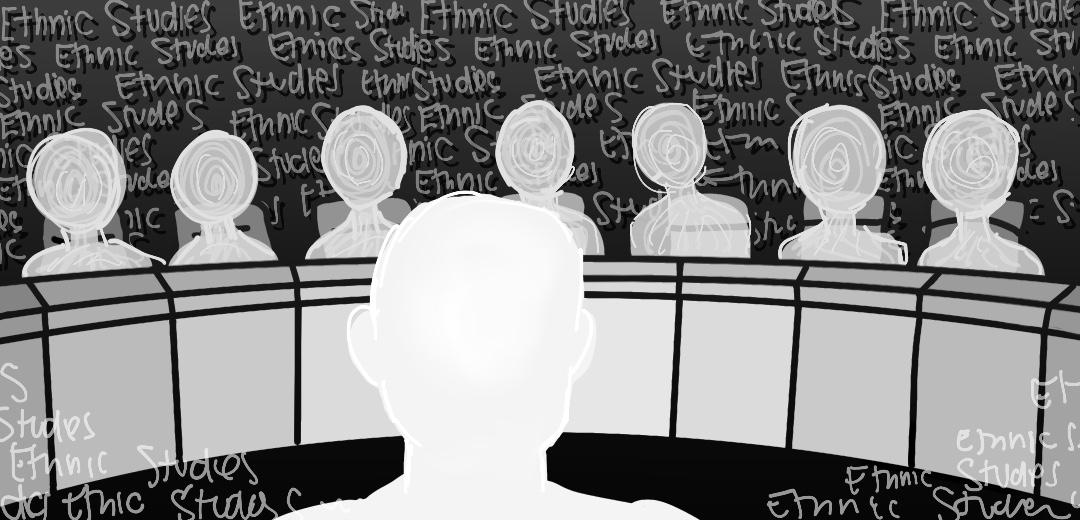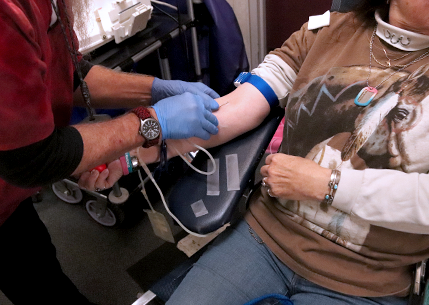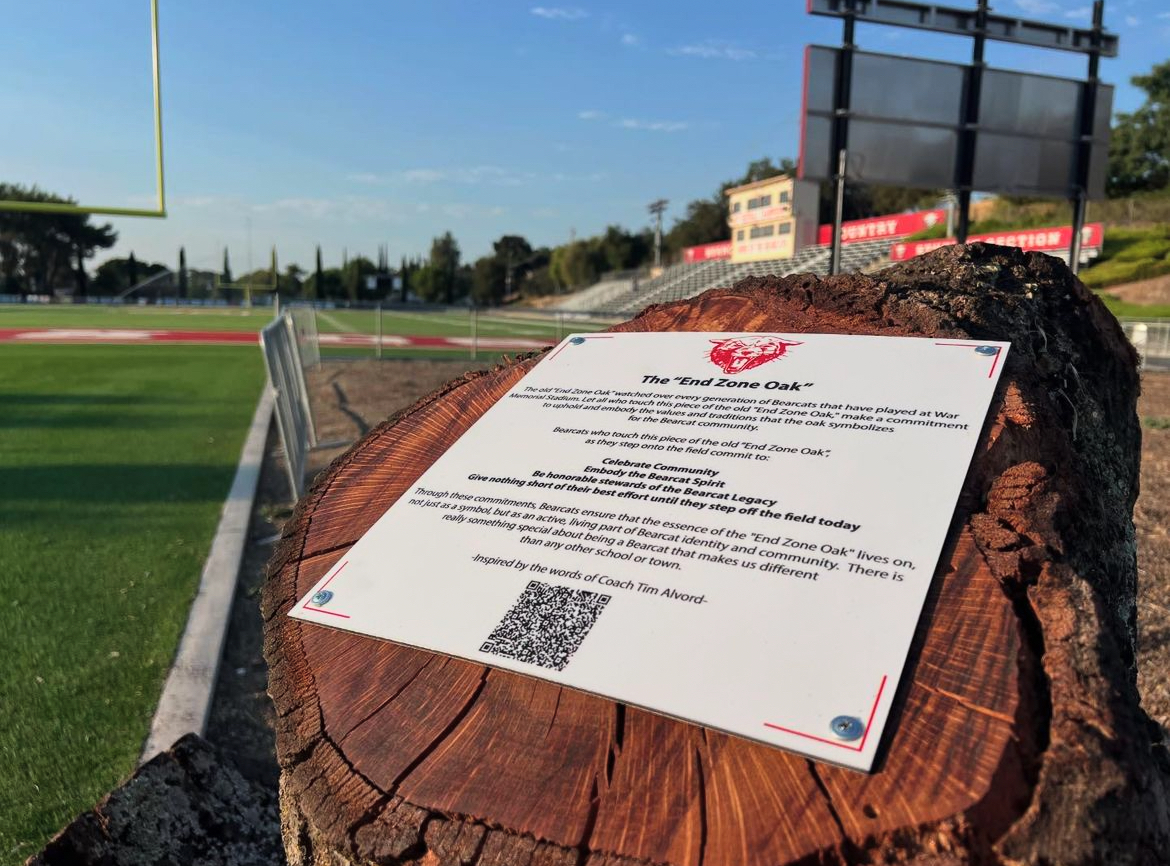After an initial rejection, long debate, two board meetings, and over 50 public written and call-in comments, the PRJUSD School Board approved Ethnic Studies on Apr. 13, 2021, the course that experienced history teacher Geoffrey Land developed around ethnic groups within America and their historical experiences… Many students, teachers, parents, and community members spoke on behalf of the elective course, which is a collaboration with the PRHS history department, Cal Poly professors, Cuesta College instructors, and community members.
“This class will hopefully, allow students to understand their own identity, their own ethnic and cultural and historical identity within the context of America and in Paso in particular. Ethnic Studies is, since the late 60s, an established academic discipline, it’s a major, it’s a course of study. It’s a legitimate path for career and research.”
Geoffrey Land said.

The path for approval of this course was a tumultuous one, over the past two board meetings and five weeks of creation and meetings. Though the class went through several committees and was based on classes already offered throughout California, the PRJUSD Board of Trustees continuously found enough problems pertaining to the “balance” of the curriculum that after the first presentation of the Ethnic Studies class on Mar. 23, the course was initially rejected. With the task to add additional sources and a more “balanced” curriculum, Land was given the opportunity to adjust the supplemental sources and curriculum and bring the course back for approval.
On Apr. 13, 2021, Land presented the requested revised “balanced” course. For. Land, a teacher with a history of teaching psychology, Government and Economics, Dual Immersion World History teacher, and a Cuesta College instructor, the Ethnic Studies class itself was providing balance to an education system that focused mainly on American History from a Eurocentric perspective.

“Ethnic Studies as a course and as a discipline balances a Eurocentric curriculum in colleges and high schools. The board was calling for balance, yet the whole reason that Ethnic Studies exists is to provide balance to an unbalanced curriculum.”
Geoffrey Land said
The term “balance” was used throughout the Board meeting, though the meaning of the word seemed to change with each person.
Land reported that he found it hard to communicate with the Board of Trustees and provided an example by asking the public to look at the diversity of authors from all the different required novels from English classes grades 9 to 12.
“From Steinbeck’s Of Mice and Men to F. Scott Fitzgerald’s The Great Gatsby, take a look at how many of the books are legitimately written from an authentic voice that’s not the dominant white perspective, either European or, or white American.”
Land said in hopes to help the Paso Robles community understand the lack diversity and “balance” in the education system.

To no avail, the course failed to receive the needed majority votes and was defeated once again. This defeat came after many heartfelt statements from students, community members, and 52 positive public written comments.
Yet on Apr. 13, with great compromise, the course was approved with the following additions: board members required that the course include additional works from conservative authors Thomas Sowell and Ayaan Hirsi Ali in the supplementary reading. Second, the class will only be available to juniors and seniors. Finally, the class will be available for one year as a trial run so that it can be presented to the board again to see if the class was successful as students completed it.
How the “success” of the course will be measured was left undetermined.
Board members disagreed with each other during the lively discussion, including Trustee and former PRJUSD teacher, Gearheart, who adamantly stated that Board members had no business telling teachers what and how they should teach.
Board member Dorian Baker acknowledged the changes Land made, such as the inclusion of the immigrant experiences of Irish and Jewish Americans, as “positive” and closer to the “balanced” curriculum that she believed students should be learning. However, she felt that the class was teaching and encouraging students to pursue political activism and found that she could not support it.

“The focus of this class is designed to teach how identity, race and racism and other forms of oppression, have been and continue to be profoundly powerful social and cultural forces in American society. It takes the political idealist ideology of Marxism, although maybe not named, and it dresses it up so that it can be taught at the high school level. I continue to hear from members of our community who are concerned that the course will focus on themes of social justice, social responsibility, and social change. Those concepts are troubling to many of the people that reach out to me.”
Dorian Baker said.
Kelen Macharia, President of the Black Student Union and junior at PRHS, gave a speech at the board meeting urging the board to listen to the Paso Robles community.

“I think it is more than necessary to have an Ethnic Studies class at PRHS. Though it may not be apparent, Paso High is flourishing with many different cultures and ethnicities. I believe this class will teach us how to respect others which, in turn, will lead to a more understanding and empathetic country! With this class, we’re moving towards having the balance needed within our curriculum.”
Macharia said, mentioning that Ethnic Studies will be a positive change and a step in the right direction for PRHS.
The Apr. 13 board meeting is currently one of Paso Robles Joint Unified School District’s most viewed videos on their Youtube, with more than one thousand viewers tuning in to watch. The massive amount of community involvement has Land feeling excited about the class and the new school year despite the many changes that were made to Ethnic Studies.
“In spite of the opposition, the awkward conversation, and the frustrating comments by many of the board members, I walked away really feeling proud of the students who were there shared such amazing eloquence when giving their speeches,” Land said, mentioning students Kelen Macharia, Sharon Elmer, Cheyanne Holiday, and Mel Gonzalez.

The only thing the teacher worries about is that the board’s suggestions and, in turn, the steering away from a normal Ethnic Studies class will lead to Cuesta pulling back on the dual enrollment status that the class achieved
“Their attempt to make it more balanced, I think, compromised the integrity of a true Ethnic Studies class. It’s a concern of mine, that it’s watered down to the point where Cuesta says that it isn’t a legitimate class, so that the students will lose college credits for it.. and that would be on the board,” Land said.
Land said he is ready to focus the course on a favorable view of history.
“I think there was a concern that the class would be a walk through America’s shameful past, and that it would lead students to have a negative view of their country. And I think one change could be to recognize that it’s not just focusing on the obstacles that have been placed in front of groups, but the achievements those groups have made to, you know, show resilience and maintain their cultural identity, and become a part of America.”
Geoffrey Land said.
Over the past year, America has experienced a plethora of social movements: from the Black Lives Matter movement gaining momentum in the summer of 2020 to the more recent Anti-Asian Hate crimes spreading in Mar. of 2021. The proposition of an Ethnic Studies class comes at a time where movements addressing racism are becoming more prominent and many are looking at America’s history and calling for true social justice in its society.
The timing of this course is aligned to the statewide movement of adding Ethnic Studies to California’s curriculum and local racial issues at Paso Robles High School. These issues include racially motivated fights on campus and the reported use of racially inappropriate language on campus. The Board recognized a need for a resolution that denounced racism at the same board meeting, which narrowly passed in a 4-3 vote by the trustees.
With the “Day Without Immigrants” walk-out in 2017 in PRHS’s history books, Superintendent Dr. Curt Dubost recognizes Paso Robles’ past experiences and believes that Ethnic Studies will be a step in the right direction to address a polarized political climate and find a common ground among students of all ethnicities.
“I don’t know that there could be a more perfect time for the Ethnic Studies class to come forward. I tried to stay out of the debate so that everybody could be heard, but I absolutely support this class,” Dubost said as a former U.S. History teacher. “I do also support by the way, though, the right of the elected school board to have some say on it.”
Though Dubost maintained his belief that the course is a needed and necessary class on campus, he also mentioned that in his mind, a balanced Ethnic Studies class is one that has the modifications that the board required. Dubost voiced that context is needed when addressing the topics covered in the class and is assured that the perspective of history versus contemporary will be brought up in the curriculum.

“And I don’t think that it’s unreasonable at all, for the local school board to say, we want to have a balanced view that’s not bashing American history and making it sound like all of American history is horrible when we have much to be proud of,” Dubost said. “But to have a balanced approach, that is I just use in my example to try and explain these things using the context of the time and don’t just say that it’s awful, racist and it exists today or that nothing has changed.”
Board President Christopher Arend, an avid advocate against critical race theory, mentioned that the language describing the curriculum was problematic in his eyes.
“Some of the language used in the written description of the course was a bit irritating. Lance Gannon specifically mentioned the word ‘privilege’ and touched on how he did not like the concept of teaching white privilege,” Arend said in agreement with his fellow board member. “I think in the final version of the curriculum the residual critical race theory jargon will have been pulled.”
Gannon stated that a class with this would make students of color view their Caucasian peers in a negative light. He expressed a concern that they would group white students as a part of “white privilege.”

Melissa Gonzalez is a Mexican-American junior at Paso Robles High School, a member of BSU and ACT club, and an avid supporter of the Ethnic Studies class. Gonzalez was one of the 12 students that came in attendance to support the ethnic students class in addition to 5 community members.
She addressed Gannon’s comments about kids learning about white privilege with her own anecdote.
“In no way is this class going to make us see our white fellow students differently. That shouldn’t seem like a threat in any way,” Gonzalez said. “Yet, if younger students of color, our innocents, are old enough to witness racism, then white American students are old enough to know about it and learn about it.”
“You have this group of people who have been exposed to this kind of stuff from an early age… While it seems like some are trying to keep these white students in this nutshell…” Gonzalez said, speaking from her personal experience of three years at PRHS. “Even when just walking across the quad, or just campus in general, or even in classrooms, some of the comments that are said towards certain ethnic groups. It’s just kind of horrifying to hear those things… I feel like it’s become kind of a habit for students to just blurt out racial slurs like it’s nothing.”
After the Mar. 23 board meeting, Gonzalez found herself stunned. Feeling unheard and disconnected from the assembly that was making decisions that would directly affect her, Gonzalez would speak again at the Apr. 13 Board in hopes that the Board of Trustees would hear the voices of the students, teachers, and members.
“Put yourself in these kids’ shoes… not even just the students too, parents in general. If your child was crying because someone called them a racial slur at school or because something happened to them that had to do that was based on something so simple as their skin color, something that they have no control over, what would you do? There’s not enough education on these things and we should be changing the climate here at PRHS to make everyone feel safer and appreciated so that no one should be ashamed because of their skin color.”
Mel Gonzalez said.
After months in the works, Ethnic Studies is now a class that will be available for students grades 11 and 12 to take next year. Because the class is limited to one year in session so far, only time will tell if the 2021 Board of Trustees’ decision to approve the Ethnic Studies class will be one that outlasts them and makes an enduring impact on Paso Robles High School.







